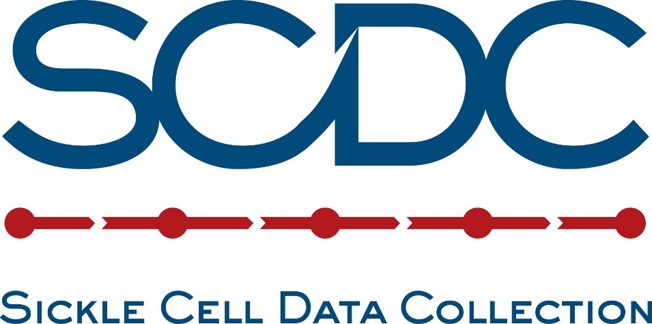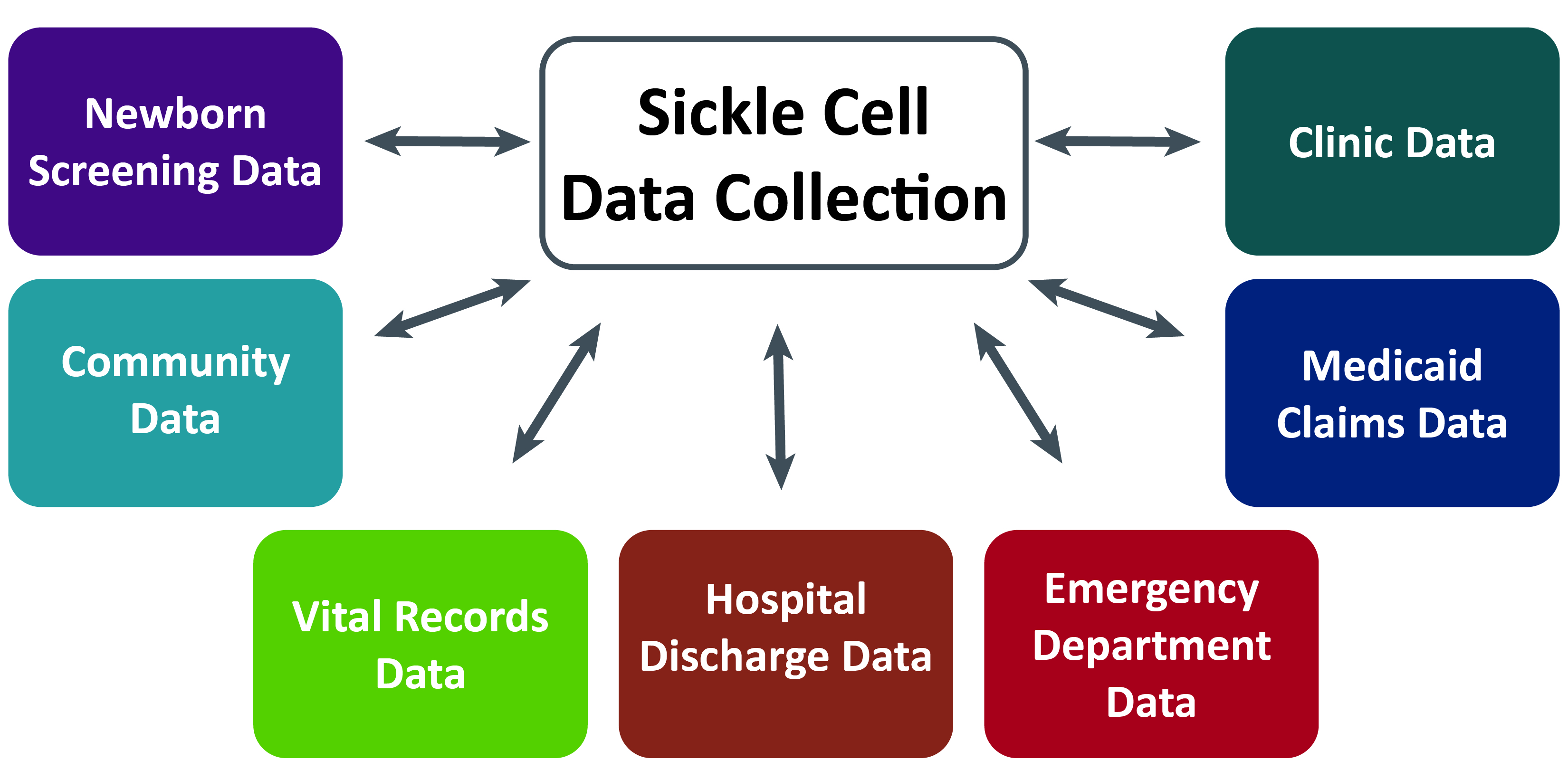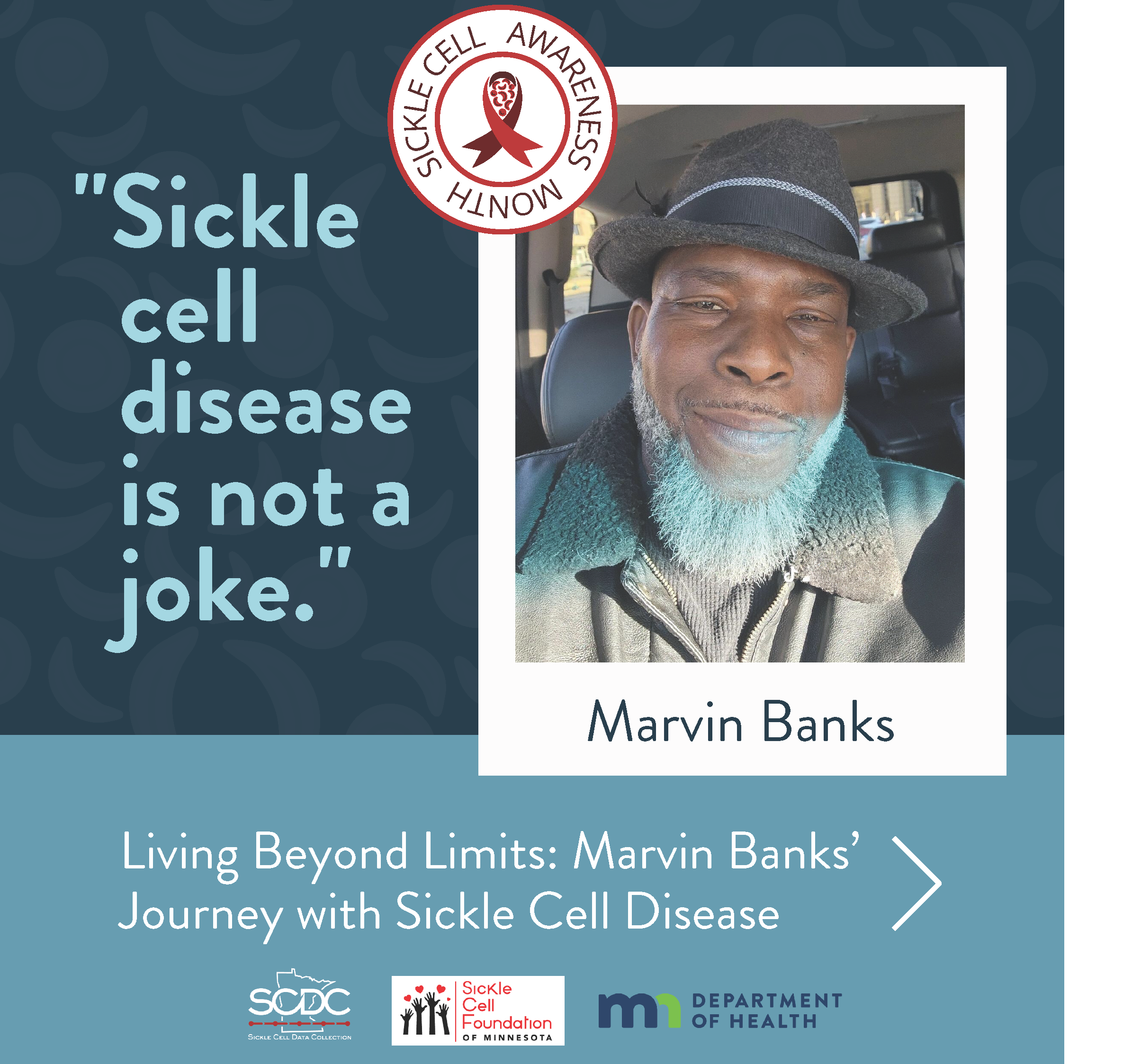Contact Info
Sickle Cell Data Collection Program
Project goals

Minnesota is one of 16 states studying Sickle Cell Disease (SCD) as part of the national CDC Sickle Cell Data Collection (SCDC) Program.
MDH and partners are working together to learn more about the experiences of those living with SCD in Minnesota. The primary goal of the SCDC Program is to improve the health, life expectancy, and overall quality of life for those living with SCD. The information we learn can help us answer some important questions:
- Who has SCD?
- Where do people with SCD live and get health care?
- What can we learn about moving from pediatric care to adult care?
- What types of care and services do people with SCD use?
- How does the care that people with SCD receive compare to the care others receive?
- Are there any gaps in care for people with SCD?
Overview of Minnesota Sickle Cell Data Collection Program
Publications
This study involved virtual interviews with Community Based Organizations (CBOs) and SCDC teams across 11 states to learn about their experiences working together. Key themes such as trust, communication, expectations, and mutual benefits emerged from these interviews. These findings provide tips for building stronger partnerships and boosting the impact of SCDC program efforts.
CDC’s Sickle Cell Data Collection program builds bridges between community-based organizations and scientists to improve the lives of people with sickle cell disease.
Main Findings
- Prioritize trust-building: Trust between CBOs and SCDC teams is crucial for successful partnerships. While historical mistrust between minority communities and medical systems remains a challenge, early, ongoing, and transparent communication can help build trust.
- Establish shared goals and define expectations: Both CBOs and SCDC teams expressed the need for clarity regarding expectations and goals of the SCDC program. Establishing aligned goals from the outset and ensuring ongoing communication about expectations are critical.
- Leverage strengths for mutual benefit: The partnerships between CBOs and data teams bring mutual benefits, including access to patient perspectives, cultural insights, sharing of SCDC data, and funding opportunities. Recognizing and leveraging these mutual benefits can strengthen partnerships.
- Incorporate community voices from the beginning: Engaging CBOs from the start ensures that initiatives are relevant, culturally appropriate, and community-driven at every stage.
- Foster open communication: Transparency and clear communication are vital for building partnerships. Cultural differences between the SCD community, emphasizing advocacy and resilience, and the more formal, data-driven culture of SCDC teams posed a notable challenge to effective communication.
- Seek out diverse partnerships and perspectives: Diversity of perspectives is the inherent strength of these partnerships. Embracing new ideas and learning from others can better address the SCD community’s evolving needs.
SCDC Minnesota Warrior: A Story of Living Beyond Limits
Marvin Banks’ journey with sickle cell disease (SCD) provides a powerful testament to resilience, the importance of support systems, and hope for a future where sickle cell disease is better understood and managed.
His story is a reminder for others living with SCD that they are not alone and that their voices can make a difference. Read more about Marvin’s inspiring story: SCDC Warrior Photoblog (Sickle Cell Foundation of Minnesota).
Data
Data sources
SCDC gathers information from existing data sets including: Newborn screening data, hospital discharge data, Medicaid claims, emergency department data, vital records, and clinic data. 
Protected health information
The data collected by MDH and partners is Protected Health Information (PHI). This data is only reported in aggregate, meaning numbers are combined and summarized in groups. There is no personal information included, such as names or birthdates.
We will NEVER share or sell personal or identifying information.
SCD in Minnesota
We are working to learn more about SCD in Minnesota. We will share more data as we have it available: Sickle Cell Disease Data and Reports.
Partners
- Sickle Cell Foundation of Minnesota
- Children's Minnesota: Hemoglobinopathy and Sickle Cell Program
- Minnesota Rare Disease Advisory Council
- Hennepin Healthcare
- M Health Fairview
- Mayo Clinic
- Minnesota Department of Human Services
- Minnesota Hospital Association
- Minnesota Sickle Cell Collaborative
More information
- Sickle Cell Foundation of Minnesota is the leading support and advocacy organization for people with SCD in Minnesota.
- Learn more about the national data collection program and what other states are doing: CDC: Sickle Cell Data Collection (SCDC) Program.
The SCDC Newsletter provides updates about the MDH SCDC program, upcoming community activities, presentations, and more.
